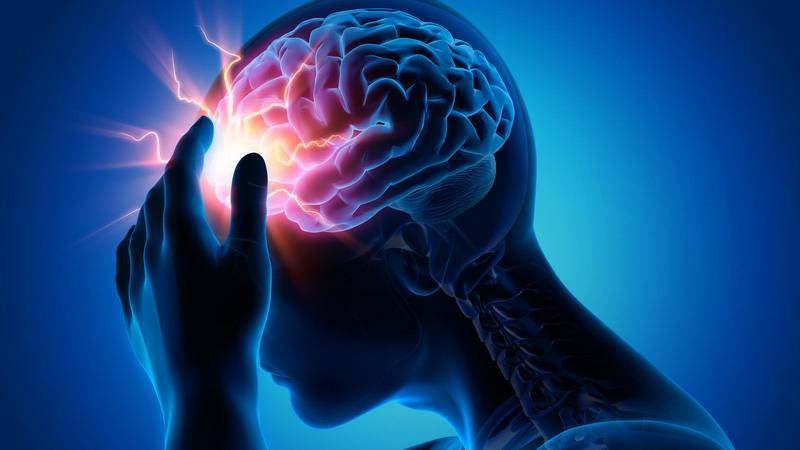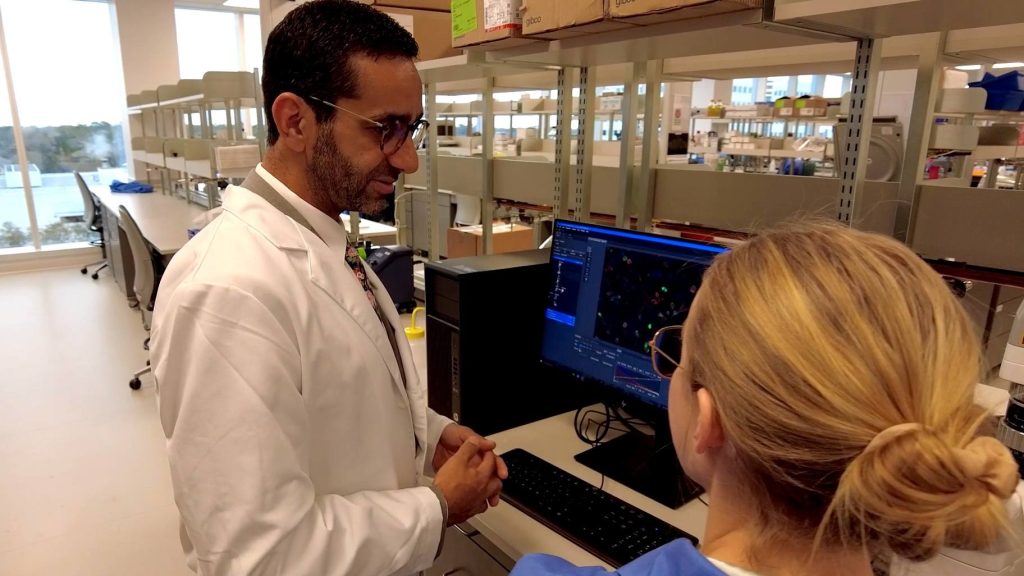-
Neurosciences
Types of encephalitis: A Mayo Clinic expert explains

Editor's note: February 22 is World Encephalitis Day.
Encephalitis is a disease referring to the inflammation or swelling of the brain. Broadly, it can happen because of infections, including viral infections, or the immune system acting up.
That's why Dr. Sarosh Irani, a Mayo Clinic neurologist and researcher, says it's essential to recognize World Encephalitis Day.
"A number of physicians, and certainly the public, are not aware of encephalitis as an entity. Yet, it is a medical emergency, where we know that early treatment makes a major difference to our patients, both with infectious forms of the disease and the growing — and perhaps now more common — autoimmune forms of the disease," Dr. Irani says.
Watch: Dr. Sarosh Irani discusses types of encephalitis
Journalists: Broadcast-quality sound bites and video broll with Dr. Irani are available in the downloads at the end of the post. Please courtesy: "Mayo Clinic News Network." Name super/CG: Sarosh R. Irani, B.M.B.Ch., D.Phil./Neurology/Mayo Clinic.
Types of encephalitis
The two main types or divisions of encephalitis are infectious and autoimmune. In some cases, the exact cause of encephalitis remains unidentified.
Important things to know about infectious encephalitis:
- It's caused by viruses invading the brain, such as herpes and enteroviruses.
- Mosquitoes and ticks can also transmit viruses which can cause encephalitis.
- Symptoms develop quickly, over days to weeks.
Most people with infectious encephalitis start with symptoms such as headache and fever. These can progress to more severe symptoms within hours to days, such as confusion, personality changes, seizures, and loss of sensation or movement in specific body areas.
Important things to know about autoimmune encephalitis:
- The immune system mistakenly attacks the brain.
- It primarily targets people from their first year of life to late 80s, both women and men. Some forms preferentially affect young or old; males or females.
- It can be triggered by an infection elsewhere in the body (post-infectious autoimmune encephalitis) or a tumor (paraneoplastic autoimmune encephalitis). But in about 90% of cases, the cause is not found.
- Symptoms can develop quickly, as per infectious encephalitis, or more slowly, over weeks to months, and may not include fever.
- Those symptoms of autoimmune encephalitis may include changes in personality, memory loss, problems understanding reality (psychosis), hallucinations (seeing or hearing things that aren't there), seizures and unusual movements.
Preventing encephalitis
Prevention is a significant challenge, says Dr. Irani.
"We do not have consistent preventive measures for these illnesses. Only a few infectious causes may be prevented with vaccinations. There are also a few causes of infectious encephalitis which we can prevent through limiting person-to-person spread or by trying to stop, for example, vectors like mosquitoes infecting some patients. But for autoimmune causes, we don't know of ways to prevent this illness, yet this is a major question from all of our patients," he says.
Research

Dr. Irani leads a research team studying autoimmune neurological diseases.
"One of our principal goals is to figure out how we can educate other neurologists and physicians around the world to identify patients earlier and give them early treatment," says Dr. Irani.
He says the research is about using science to create personalized treatments that make a difference for patients.
"I see ourselves as a translational research group. We see patients, care for them clinically, and obtain samples from our patients to understand their disease more closely," he says. "We then correlate clinical findings with those we obtain in our laboratory."
As for the laboratory work, he's interested in learning more about how these diseases occur.
"We want to know how the cells of the immune system that caused the illness appeared, how they perpetuate, which bodily compartments they go to, which parts of the body they reside in, and then, of course, fundamentally, how we can accurately delete them without giving the patients many side effects," says Dr. Irani.

Present and future research
"In the short term, I hope this research will help patients by giving physicians a better understanding of when we should treat patients, how we should recognize them and which treatments might be most effective in which scenarios," he says.
"In the longer term, I hope we'll be able to build a platform by which we can interrogate each disease in turn and, as they all are slightly different to each other, try and ask how they cross compare to one another. And how can we offer the right patient the right treatment at the right time," says Dr. Irani.
Learn more about encephalitis research at Mayo Clinic:
- Autoimmune encephalitis: Paving the way to better outcomes
- Avoiding misdiagnosis of autoimmune encephalitis







